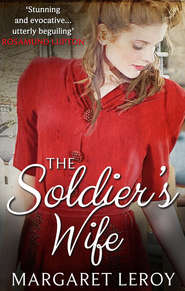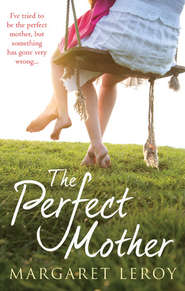По всем вопросам обращайтесь на: info@litportal.ru
(©) 2003-2024.
✖
The Drowning Girl
Автор
Год написания книги
2018
Настройки чтения
Размер шрифта
Высота строк
Поля
She’s staring out of the window, where the snowflakes turn and turn as they fall, and fur the sills with white. Her expression is gentle with nostalgia.
But I’m impatient.
‘And what did he say? Did he give it a blessing? Did better things start happening?’
There are cut-off fronds of juniper on the table; she trails her finger through them, so they release their aromatic resins. Her bracelets make a faint metallic sound.
‘He stood there looking at us,’ she says. ‘He had these very blue eyes—startlingly blue, like a child’s eyes. And he said—I’ve never forgotten—“It’s not the dead we should be afraid of, but the living…”’ Her appalling Irish accent makes me smile. ‘“My daughters, always remember: it’s the living we should fear.”’
CHAPTER 11
The Arbours was once a private house. It’s a solid, whitewashed building, imposing amid its cedar trees and lawns.
The receptionist has nail extensions—navy blue, with stick-on gems. We sit in the waiting room, which smells of damp and beeswax. Thank-you cards from children have been pinned up on the walls, and there’s a heap of ancient children’s books. I read Frog and Toad to Sylvie, self-conscious about my mothering, wondering if we’re already being analysed, if the receptionist with the long jewelled nails is marking my parenting out of ten.
Dr Strickland comes to greet us. He’s a scented, immaculate man, white-haired, with a neat goatee beard. He shakes my hand; his skin is cool and smooth, like fabric.
‘I ask everyone who comes here to spend some time in the playroom,’ he tells us. ‘It helps me to understand you. I’ll be watching you through a one-way screen, but you’ll soon forget I’m there. So just enjoy yourselves.’
The playroom is all in primary colours, with lots of inviting toys—a cooker, bricks and Lego, a heap of dressing-up. Sylvie goes straight to the cooker and makes me a Play-Doh meal, which she cooks in the red plastic saucepans. I watch her as she plays—her decorous gestures, her silky colourless hair. She’s so poised, so self-possessed today. It’s the only time I’ve ever wished that she would be really difficult.
We’re joined by a woman with parrot earrings and a wide white smile. She says she is Katy the play therapist, and she will play with Sylvie, while I talk to Dr Strickland. She directs me to his office, which looks out over the lawns. It’s a blowy day, wind wrenches at the branches of the cedars, but his room is hushed and silent. He gestures me to a chair. To the side of us there’s one-way glass looking into the playroom.
‘Right, Ms Reynolds.’ He picks up a fat silver pen, pulls a notepad towards him. His cologne is too sweet for a man. ‘So when did you first begin to believe that Sylvie has problems?’ he says.
I don’t like the way he says ‘believe’. But I talk about her tantrums and her waking in the night, and he writes it all down with the fat silver pen.
‘And she has a phobia of water,’ I tell him. ‘Especially water touching her face.’
‘Yes, Mrs Pace-Barden told me. Was there any traumatic event that might have triggered her fear?’
‘No, there was nothing,’ I say. ‘I’ve thought about that a lot.’
‘So when did you first begin to notice the problem?’ he says.
‘She always hated bath time right from a tiny baby,’ I tell him. ‘We manage. I put in two inches of water, and she just does a quick in and out with absolutely no splashing. When I wash her hair I use one of those face shield things from Mothercare…’
‘You need to help her play with water in a relaxed situation,’ he says. ‘Help her learn to feel safe with water.’
‘Yes. I’ve tried that,’ I tell him.
I think of all the things I’ve tried to make her less afraid—playing at hair salons with her Barbies, buying a special watering can for watering the flowers. I think of her shuttered face when I’ve suggested these things. No, Grace. Idon’t want to.
He frowns at the notes in front of him.
‘Now, the other things—the screaming and the waking in the night. Do they go back a long way too?’
‘Yes. But they seem to be getting worse. It’s almost every night now.’
‘Is there anything else that concerns you?’
‘Mrs Pace-Barden was worried because she always draws the same picture,’ I tell him.
‘What’s in this picture?’ he asks me.
‘It’s just a house,’ I tell him.
I think he will ask, like Mrs Pace-Barden—Did something happen to her there? But instead he smiles a brief ironic smile.
‘I have the greatest respect for Mrs Pace-Barden,’ he tells me, ‘but if we took on every child who repeatedly draws a house, the NHS would be in an even more perilous state than it is… Now, let’s go back a bit,’ he says.
He asks about Sylvie’s birth, how well she fed, her developmental milestones. This all seems quite straightforward.
Then he leans a little towards me.
‘Now, I think you’re in the unfortunate position of being a single parent?’ he says.
I nod. It’s the part of the consultation I’ve been dreading.
‘So what about her father? Does she see him?’ he says.
‘No,’ I say. Afraid he will think that this is an explanation for everything.
‘When relationships break down, it’s natural to feel a certain amount of anger.’ He has a sibilant, unctuous voice. ‘Absolutely natural. And I’m wondering if you felt that?’
I tell him yes: I’ve planned what I will say.
‘I’d have liked him to be there for her—to be a father to her.’
‘Of course,’ he says. ‘That’s absolutely normal. And Sylvie herself, of course, will yearn for a father figure, and for those things you can’t provide, that only a father can give…’
I hate him putting it like that. I don’t say anything.
‘Now, when you look at Sylvie,’ he says, ‘do you perhaps sometimes see her father in her?’
I shake my head.
‘I can see they’re alike, of course, but Sylvie’s very much herself,’ I say.
‘All right. Thank you, Ms Reynolds.’
He moves his notepad between his palms, aligning it precisely with the edge of his desk.
‘Now, I’ll take you through the possible diagnoses,’ he says.
I feel a quick warm surge of hope. I tell myself that he is the expert, this scented, immaculate man, and that now he is going to help us—to diagnose Sylvie and heal her.
‘As you know, I’ve been watching Sylvie play, and it’s really been very instructive. Given the history, one possible diagnosis would be Autistic Spectrum Disorder. And Sylvie does have some rigidity of behaviour and thought. But, against that, she has good eye contact and good communicative intent, which autistic children never have, and her fantasy play is excellent. Autistic children don’t play like Sylvie, they can’t create these rich symbolic worlds. Post-traumatic stress disorder would also be a possibility—but there’s no evidence in what you told me of any traumatic event. Though obviously something may have happened that you’re not aware of. Sometimes we don’t know our children quite as well as we think we do.’









